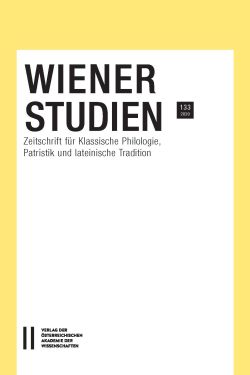
Wiener Studien 133/2020, pp. 169-214, 2020/07/23
Zeitschrift für Klassische Philologie, Patristik und lateinische Tradition
Of Seneca’s eight authentic tragedies, Hercules furens exhibits the most divergent hermeneutic perspectives on the titular hero. These range from devaluation of Hercules as an ignorant individual torn by conflicting emotions to appreciation of him as a Stoic hero. This contribution supports the latter position, following Zwierlein (1984), Wiener (2006), and with explicit recourse to Seneca’s philosophical views. Firstly, I argue that Seneca’s Hercules is pictured as a figure characterized by virtus, not by hybris. He thus matches the positive image of the god-like hero of the philosophical schools that interested Seneca (viz. Cynicism and the Stoics). Secondly, I show that Seneca in the tragedy dramatizes the difference between madness caused by false beliefs and pathological madness for which the sufferer is not responsible (cf. epist. 94,17), attributing the former to Juno, and the latter to Hercules. A comparison of Medea, who exemplifies anger in Seneca’s tragedy of the same name, with Juno in the Hercules Furens and an analysis of Hercules’ atrocity against the background of Aristotelian considerations on action against one’s will in EN 3 conclude the article.